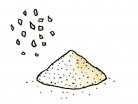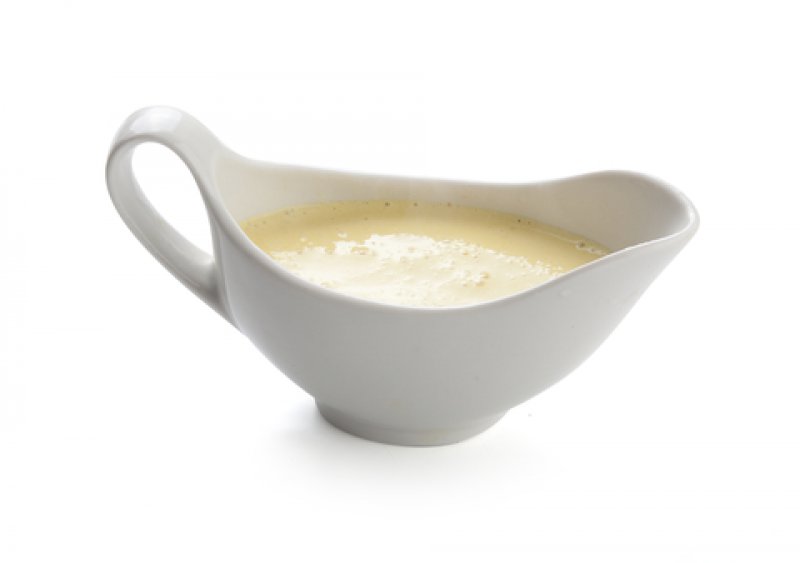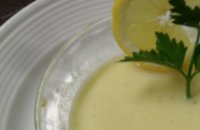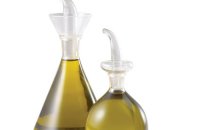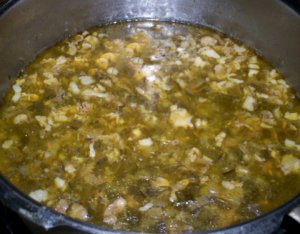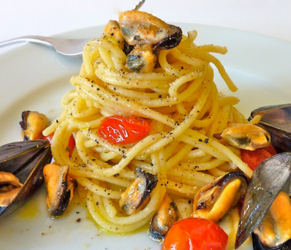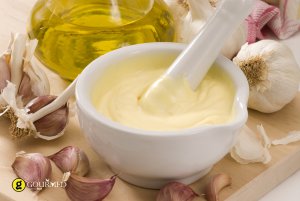What to do when …
… your sauce has over-heated.
Empty the sauce immediately into a clean pot and taste it in order to determine how badly its taste has been altered. Stir a few times with a wooden ladle then leave it to rest so that the burnt part could sit on the bottom of the pot. Repeat this procedure one more time.
… your sauce is too greasy.
Remove the sauce from the burner and leave it to cool. Then try to carefully remove the fat with a small spatula. It is important to collect only the top part of the fat. Repeat this procedure as often as necessary. The fat could then be used to cook meals with meat as the basic ingredient.
… your sauce looks and tastes dull.
You could add flavour to your sauce by adding cream, or perhaps various wines and spices, in an effort to liven it up.
… your sauce has developed a crust.
The best thing to do is to drain the sauce through a thin strainer, perhaps more than once.
… your sauce is too salty.
If this is the case, it is too late to do anything. But if the sauce has too much pepper, you could soften the taste by adding some sour cream milk.
… your sauce is too thick.
To thin out your sauce add some cream milk, sour cream milk, or a distilled liquid. You could also use a very good watered wine. Or boil some finely chopped dill with Bouquet garni, spices and wine, and at that to the mix.
Ingredients that have the potential to enhance a dish Greek style:
- A well-chosen oil could become a base for many sauces, both cold and warm. Make sure the oil is fresh and, when it is cold, make sure it is well-beaten, this simple addition eases the pressure on the stomach, and is great for blood circulation.
- Freshly used herbs are rich in vitamins and minerals, and because of these qualities, they often allow for meals are digested easily. Even so, they should not be overheated because they loose their aroma.
- A sauce can become much tastier and seemingly lighter when you use butter as a base. The butter thickens the sauce and gives it a refined taste. Such a sauce goes best with meat and fish, because of the strong flavour.
- "Bouquet garni" is a term that refers to various herbs, all of which are very important for seasoning and used often in French cuisine. Such a bouquet often consists of leeks, parsley, thyme, and laurel leaves. Tie these herbs together with a string and place the bouquet in the sauce to boil.
- Eggs are often important to cold or warm sauces. The yolk unites the mayonnaise or brings the Hollandaise to the right temperature, turning it into a thick sauce. The eggs must be fresh so that the yolks are still round in the whites.
- Garlic gives almost any sauce a better taste and finer aroma, but even so it should be used with great care. Too much garlic could spoil a sauce.
- Wine is also an important ingredient for making sauces. Extinguishing with wine the remaining juices of cooked meats will create a special aroma. A sauce with red wine is best served with beef, lamb, or other hunting meats. A sauce with white wine is best served with veal or fish.
- Mushrooms are good additions to most sauces because they diversify the taste. When adding mushrooms, also add a distilled liquid to further refine the taste, flavour, and aroma of the sauce.
- While mixtures are boiling, other important additions can include various vegetables, usually carrots, onions, celery, and parsley root.
- For aromatic sauces made with fruits, one must be careful to use fruits that are ripened and seasoned. Mash such fruits, combining them with other sweet ingredients, to create the perfect sauce for desserts.
- Adding lemon juice to a sauce will not only enhance its taste, but will prove soothing to the stomach and digestive system. Aside from the juice of the lemon, Greek chefs often add to their sauces a slice of lemon peel, or perhaps that of an orange, to give it a special flavor.
- Fine, select alcohols are often used in modern and light sauce recipes. However, the dose of the alcohol must be small and precise, since such liquids could greatly affect the overall flavour, potentially ruining the sauce.














































